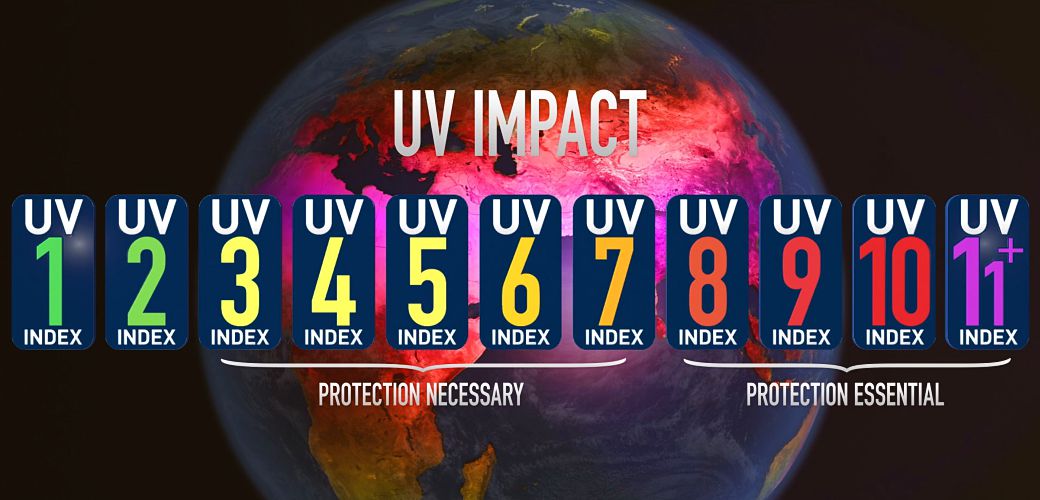
Sunlight
It’s all about the right balance
Without sunlight, plants die in a short period of time. Humans also can’t live without sunlight. It keeps you fit and makes you happy.
We don’t need light just to see. For example, the pineal gland, which controls our day-night rhythms through the production of the hormone melatonin is influenced by the amount of light. Our emotional state is also strongly influenced. Research shows that when our skin absorbs UV rays, we are flooded with the happiness hormones.
We have about two square meters of skin which act as a covering for the body, similar to an awning. Most people like to be outside on sunny days, whether they are doing something active or relaxing while bathing in the sun. Our physical feeling of wellbeing influences our good mood and is a positive incentive.
Last but not least, sunlight is extremely important for the formation of vitamin D in the body. Its name is actually misleading because, vitamin D is not even a vitamin. It is closer to a hormone produced by the body with the help of sunlight.
It is very important for our health and wellbeing. You can see this by the fact that it effects many parts of the body. Organs and bones are equipped with molecular receptors where vitamin D can dock onto. Then it acts like a switch in the cell and can activate and regulate around a thousand genes.
We all know about the influence vitamin D has on the immune system. During winter, when the days are short and the sun rarely shines, vitamin D’s reservoir empties. Most people become much more susceptible to colds and flu epidemics.

Ideally, we would have the same level of vitamin D throughout the year. The German Nutrition Association (Die Deutsche Gesellschaft für Ernährung) recommends 20 micrograms of vitamin D every day. Even though we could consume 20 percent through our diet, it’s not easy with vitamin D since it’s mainly found in fatty marine fish. The Robert Koch Institute estimates that about 60 percent of Germans are vitamin D deficient since they get too little from their diet. That’s why getting enough natural sunlight in small doses is needed to fill the gap. At the same time, it’s important to be aware that too much UV radiation is dangerous and the skin is damaged before we see the first signs of a sunburn. However, it is important to keep the following in mind: sunscreens are designed to protect us from the solar spectrum that is responsible for the production of vitamin D.
It's extremely important to soak up sun on a regular basis. However, the right dose of sun decides on the health benefits. Too much sun exposure is just as harmful as too little. In addition to getting sunburned, premature skin aging and skin cancer can damage the skin, and this is caused by the sun.
Having a good plan means soaking up sun every day on your bare skin or with light clothes, but only for a short period of time. Dermatologists recommend 10 to 15 minutes a day; that's enough time for the body to produce enough vitamin D. Midday sun should be avoided as much as possible, especially in summer months when UV radiation is at its highest and most dangerous.
Vitamin D protection works best when the skin is bare. Clothing and sunscreens inhibit the production of vitamin D simply by helping to reduce UV radiation reaching the skin. That means there is less UV light available to produce vitamin D.
Yet when you are out in the sun for a longer period of time, especially with high-intensity rays, the body absorbs UV radiation to produce vitamin D.
Therefore, it’s important to weigh the pros and cons on what to do each time. If you know you will be out in the sun for a few minutes, then you can do without protection for a short period of time. If in doubt, you should always use sunscreen because you should avoid even a slight sunburn!
The UV Index helps to see the stop light
The WHO’s UV Index` numerical ranges and recommendations for protection are as follows:
Read moreSunlight influences a multitude of health and wellbeing aspects:
- Sunlight stimulates breathing, blood flow, circulation and metabolism
- When the body gets enough sunlight, it releases more serotonin, the happiness hormone, which improves moods and makes people feel more balanced, satisfied and happy
- Light exposure inhibits the formation of the sleep-inducing hormone melatonin
- Sun exposure on the skin stimulates the formation of nitric oxide and leads to the dilation of blood vessels which reduces arterial pressure and lowers blood pressure. This reduces the long-term risk of heart attacks or strokes
However, the plea about the importance of getting enough vitamin D and this being a reason to regularly tan — at least in regions of the world lacking in sunlight — can’t hide the fact that UV rays are dangerous for humans. The risks of excessive sun exposure range from premature skin aging to deadly forms of skin cancer.
This is the reason sun care experts warn of any unprotected exposure to the sun. The cosmetics industry is now able to meet this demand for safety and offers numerous care products that already integrate sunscreens.

